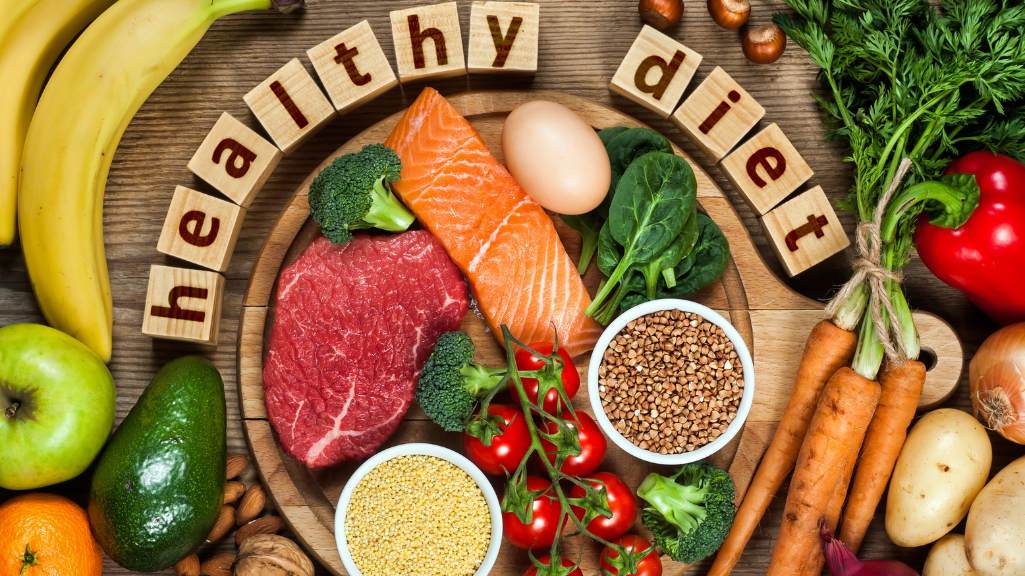A Guide to a Healthy Diet: Nourishing Your Body for Optimal Wellness
Swati Mandana
. 2 min read
Maintaining a healthy diet is crucial for promoting overall well-being and ensuring optimal functioning of the body. A balanced and nutritious diet, coupled with expert guidance, can provide essential nutrients, vitamins, and minerals that support growth, energy production, and disease prevention. This article, along with a video chat option, aims to provide you with valuable information and personalized advice on building a healthy diet that will help you achieve your wellness goals.

Valuable Information on Building a Healthy Diet
- Eat a Variety of Nutrient-Dense Foods: A healthy diet should include a wide range of nutrient-dense foods from all major food groups. These include fruits, vegetables, whole grains, lean proteins, and healthy fats. Aim to incorporate a colorful assortment of fruits and vegetables to ensure a diverse intake of vitamins, minerals, and antioxidants.
- Focus on Whole Grains: Choose whole grain alternatives such as brown rice, quinoa, whole wheat bread, and oats over refined grains. Whole grains retain the bran, germ, and endosperm, providing a rich source of fiber, B vitamins, and minerals. Fiber aids digestion, promotes satiety, and helps maintain stable blood sugar levels.
- Include Lean Proteins: Proteins are essential for building and repairing tissues, producing enzymes and hormones, and supporting a healthy immune system. Opt for lean sources of protein such as skinless poultry, fish, legumes, tofu, and low-fat dairy products. These options provide essential amino acids while being lower in saturated fats.
- Healthy Fats are Essential: Incorporate healthy fats into your diet, such as avocados, nuts, seeds, olive oil, and fatty fish like salmon. These fats provide omega-3 fatty acids, which support brain function, heart health, and reduce inflammation. However, moderate portion sizes are key as fats are calorie-dense.
- Limit Added Sugars and Processed Foods: Excessive intake of added sugars and processed foods can lead to weight gain, increased risk of chronic diseases, and energy crashes. Minimize your consumption of sugary beverages, candies, processed snacks, and foods high in trans fats and sodium. Opt for natural sugars from fruits and limit sweet treats to occasional indulgences.
- Stay Hydrated: Water is vital for overall health, so drink plenty of it throughout the day. Hydration supports digestion, nutrient absorption, joint health, and regulates body temperature. Aim to drink at least eight glasses (64 ounces) of water daily. Adjust this amount based on factors such as physical activity, climate, and individual needs.
- Portion Control and Mindful Eating: Practicing portion control and mindful eating can help maintain a healthy weight and prevent overeating. Listen to your body's hunger and fullness cues, eat slowly, and savor each bite. Pay attention to your plate's composition, ensuring a balance of nutrients and reasonable portion sizes.
- Plan Ahead and Cook at Home: Preparing meals at home allows you to have control over the ingredients, portion sizes, and cooking methods. Plan your meals in advance, include a variety of foods, and experiment with healthy recipes. This approach not only promotes a healthier diet but can also save you money.
Conclusion
Adopting a healthy diet is a powerful investment in your well-being. By incorporating a variety of nutrient-dense foods, emphasizing whole grains, lean proteins, healthy fats, and staying hydrated, you can fuel your body with the necessary nutrients it needs for optimal function and overall vitality. Remember, small, sustainable changes in your eating habits can lead to long-term positive health outcomes. Prioritize your nutrition, and embark on a journey towards a healthier, happier you.
.jpg)
.jpg)